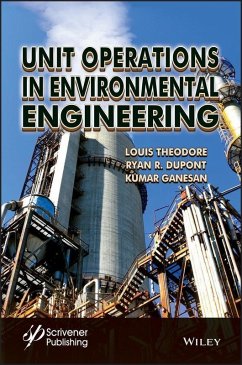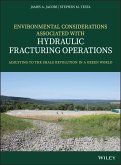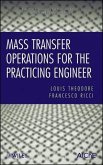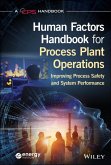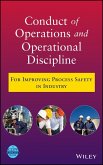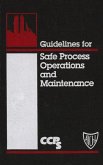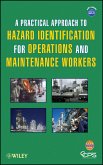The book presents the principles of unit operations as well as the application of these principles to real-world problems.
The authors have written a practical introductory text exploring the theory and applications of unit operations for environmental engineers that is a comprehensive update to Linvil Rich's 1961 classic work, "Unit Operations in Sanitary Engineering". The book is designed to serve as a training tool for those individuals pursuing degrees that include courses on unit operations. Although the literature is inundated with publications in this area emphasizing theory and theoretical derivations, the goal of this book is to present the subject from a strictly pragmatic introductory point-of-view, particularly for those individuals involved with environmental engineering.
This book is concerned with unit operations, fluid flow, heat transfer, and mass transfer. Unit operations, by definition, are physical processes although there are some that include chemical and biological reactions. The unit operations approach allows both the practicing engineer and student to compartmentalize the various operations that constitute a process, and emphasizes introductory engineering principles so that the reader can then satisfactorily predict the performance of the various unit operations equipment.
"This is a definitive work on Unit Operations, one of the most important subjects in environmental engineering today. It is an excellent reference, well written, easily read and comprehensive. I believe the book will serve well those working in engineering disciplines including those beyond just environmental and chemical engineering. Bottom-line: A must for any technical library".
-Kenneth J. Skipka, CCM
The authors have written a practical introductory text exploring the theory and applications of unit operations for environmental engineers that is a comprehensive update to Linvil Rich's 1961 classic work, "Unit Operations in Sanitary Engineering". The book is designed to serve as a training tool for those individuals pursuing degrees that include courses on unit operations. Although the literature is inundated with publications in this area emphasizing theory and theoretical derivations, the goal of this book is to present the subject from a strictly pragmatic introductory point-of-view, particularly for those individuals involved with environmental engineering.
This book is concerned with unit operations, fluid flow, heat transfer, and mass transfer. Unit operations, by definition, are physical processes although there are some that include chemical and biological reactions. The unit operations approach allows both the practicing engineer and student to compartmentalize the various operations that constitute a process, and emphasizes introductory engineering principles so that the reader can then satisfactorily predict the performance of the various unit operations equipment.
"This is a definitive work on Unit Operations, one of the most important subjects in environmental engineering today. It is an excellent reference, well written, easily read and comprehensive. I believe the book will serve well those working in engineering disciplines including those beyond just environmental and chemical engineering. Bottom-line: A must for any technical library".
-Kenneth J. Skipka, CCM
Dieser Download kann aus rechtlichen Gründen nur mit Rechnungsadresse in D ausgeliefert werden.

